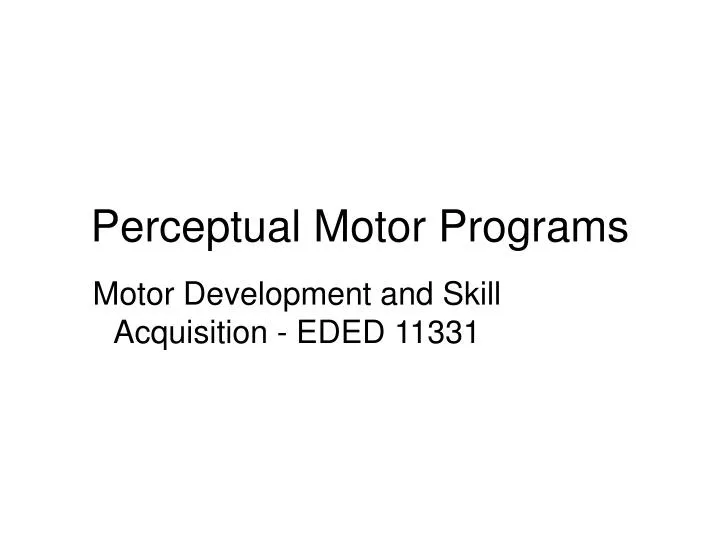
PPT Perceptual Motor Programs PowerPoint Presentation, free download ID4604352
Introduction. Motor learning dynamic has been described by several models and theories. They share a common assumption that people acquire motor skills in a similar way, i.e., going through distinct stages (Magill and Anderson, 2017).One of such models, i.e., Gentile's model of motor learning (Gentile, 1972, 2000) recognizes two levels: an initial stage and latter stages of learning.
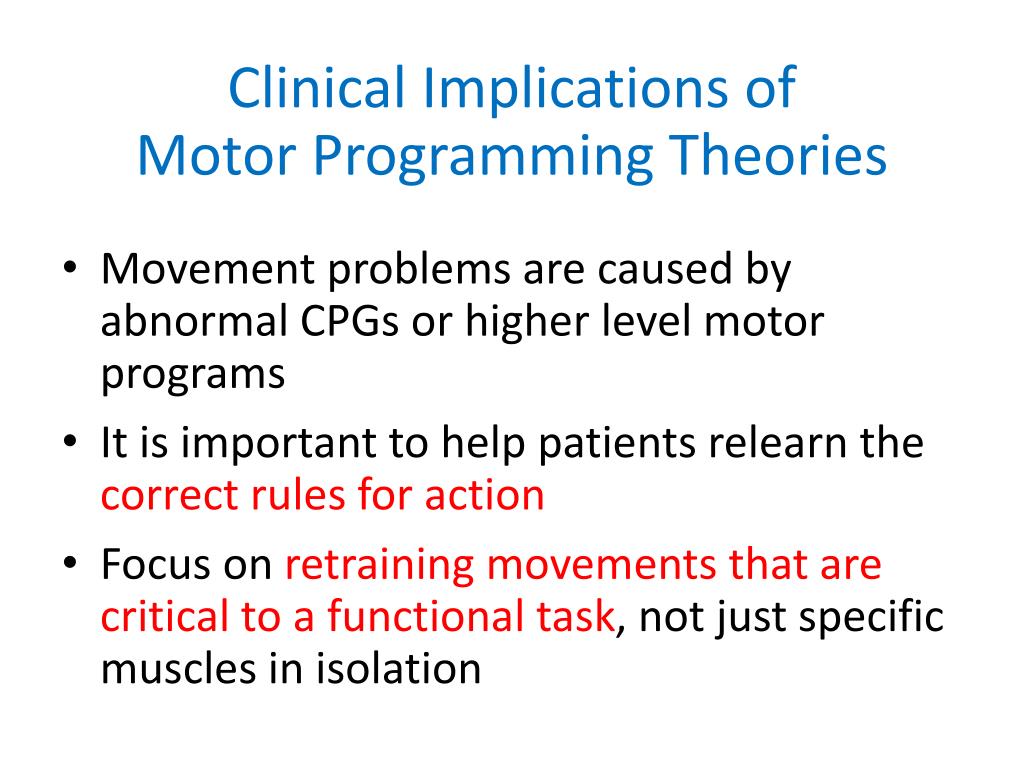
PPT PTP 512 Neuroscience in Physical Therapy Motor Control Issues and Theories PowerPoint
The motor program is a concept that has had a major influence on theorizing in the field of motor control. However, there has been a lack of consensus as to what exactly is a motor program and its role in movement organization and execution. In 1994 Morris, Summers, Matyas, and Iansek concluded from a review of the application of the motor.

Motor programme screencast YouTube
Motor program theory suggests several ways, therefore, in which skill training might be improved. It suggests that the quality of the match between feedback and model is critical. It suggests that temporary provision of artificial feedback may be useful, particularly when it can be matched with a comparable model. In some instances the.

SOLUTION Motor relearning program Studypool
Programming saccadic eye movements. Paper presented at the 25th Annual Meeting of Psychonomic Society, San Antonio, Texas. Google Scholar. Adams, J. A. (1976). Issues for a closed-loop theory of motor learning. In G. E. Stelmach (Ed.), Motor control: Issues and trends (pp. 87-107 ). New York: Academic. Google Scholar.
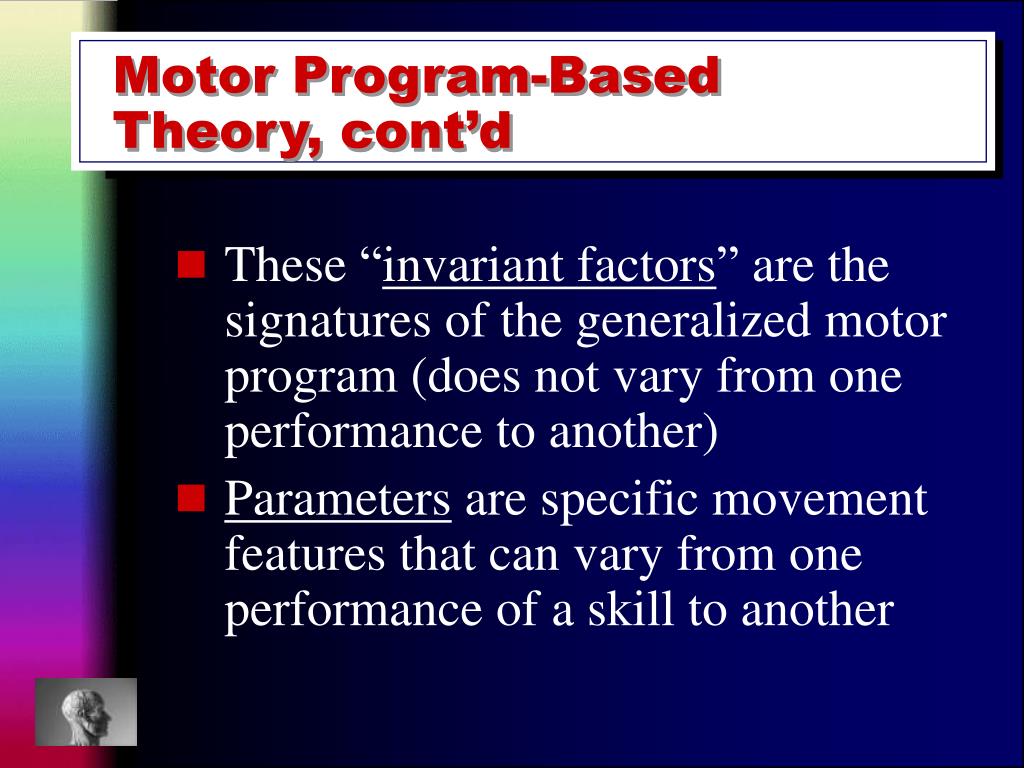
PPT Chapter 4 PowerPoint Presentation, free download ID4549270
Motor Programming Theories. What is a motor program? What is the motor program theory? Click the card to flip 👆. ~ wiring (nerves) + response (movement) ~ a network of neurons flexibly arranged to create movement. ~ store the rules for generating movement. ~ aka Central Pattern Generator (CPG) Click the card to flip 👆.
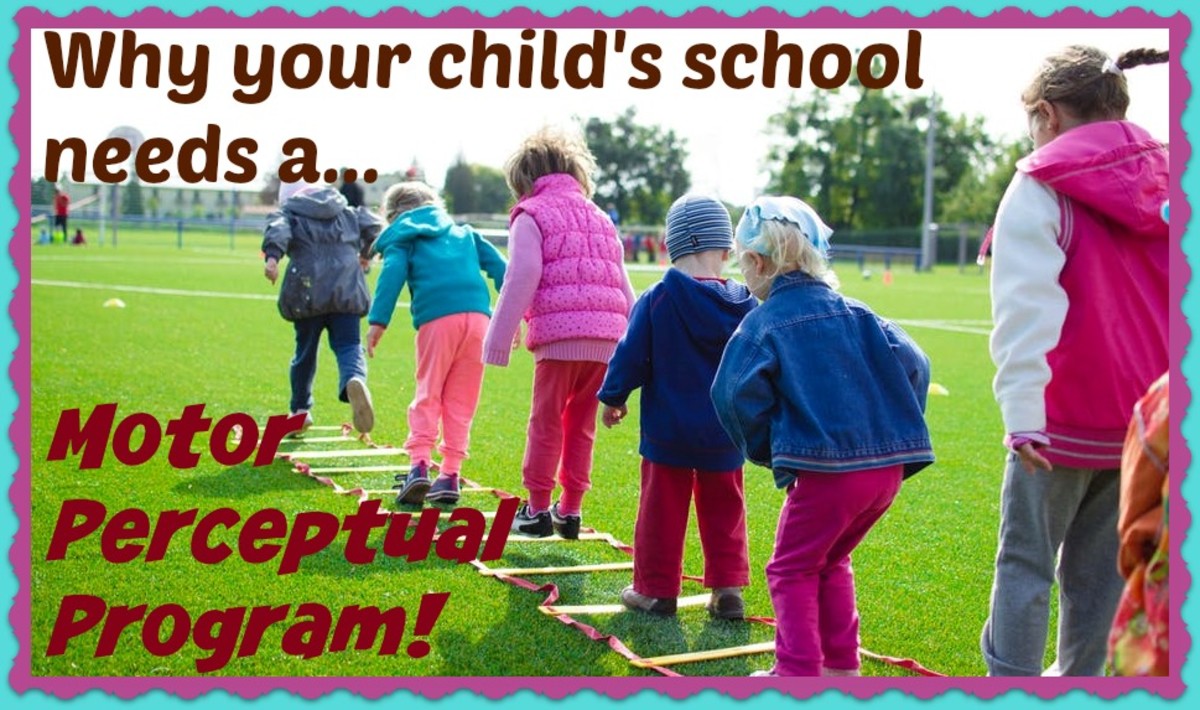
What Is a PerceptualMotor Program and Why Should Your Child's School Have One? WeHaveKids
Answer. The difference between motor planning and motor programming is one of anatomic structure - of whole articulator at the planning level and muscles at the motor programming level. The motor plan specifies the movement goals with respect to the articulators; the motor program specifies which muscles will be used in moving the relevant.
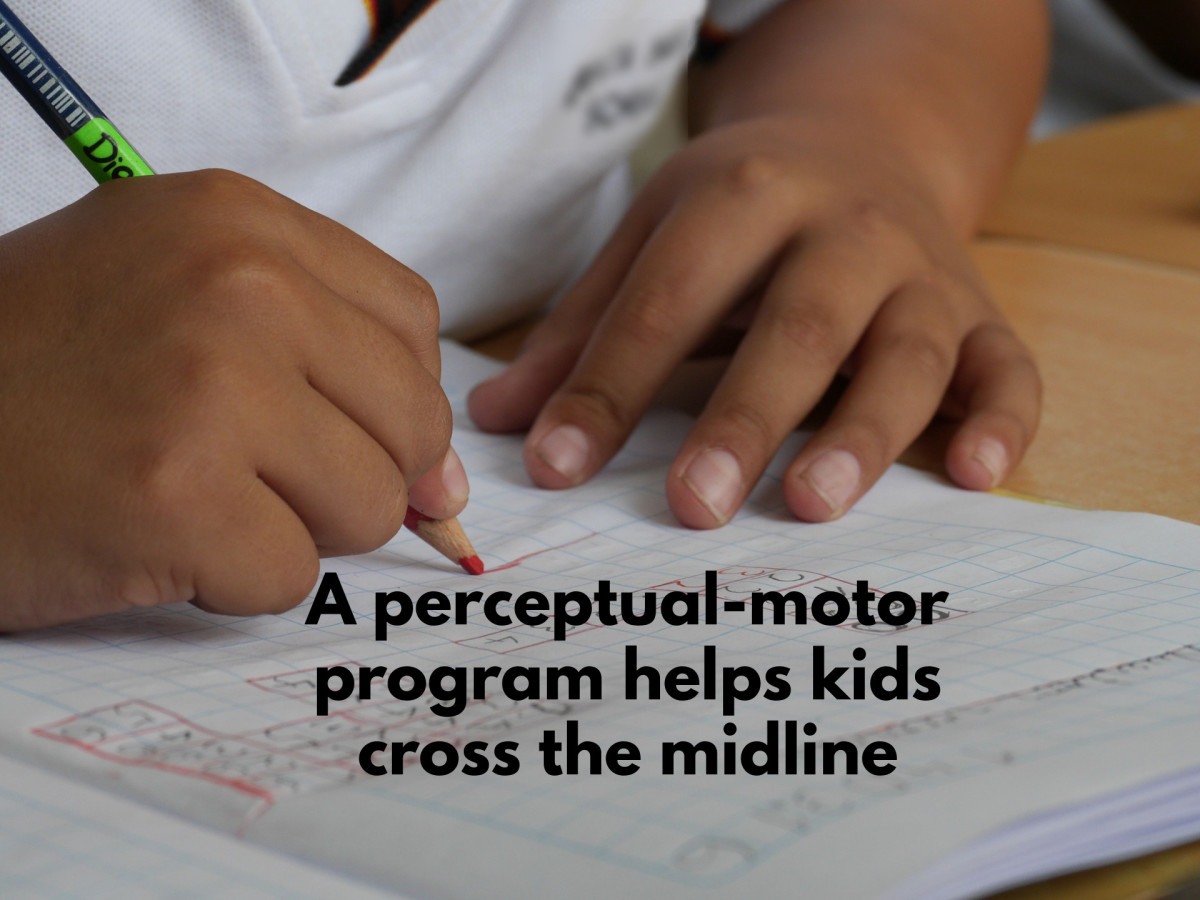
What Is a PerceptualMotor Program and Why You Should Start One at Your Child's Elementary
The motor program is a concept that has had a major influence on theorizing in the field of motor control. However, there has been a lack of consensus as to what exactly is a motor program and its role in movement organization and execution. In 1994 Morris, Summers, Matyas, and Iansek concluded from a review of the application of the motor.
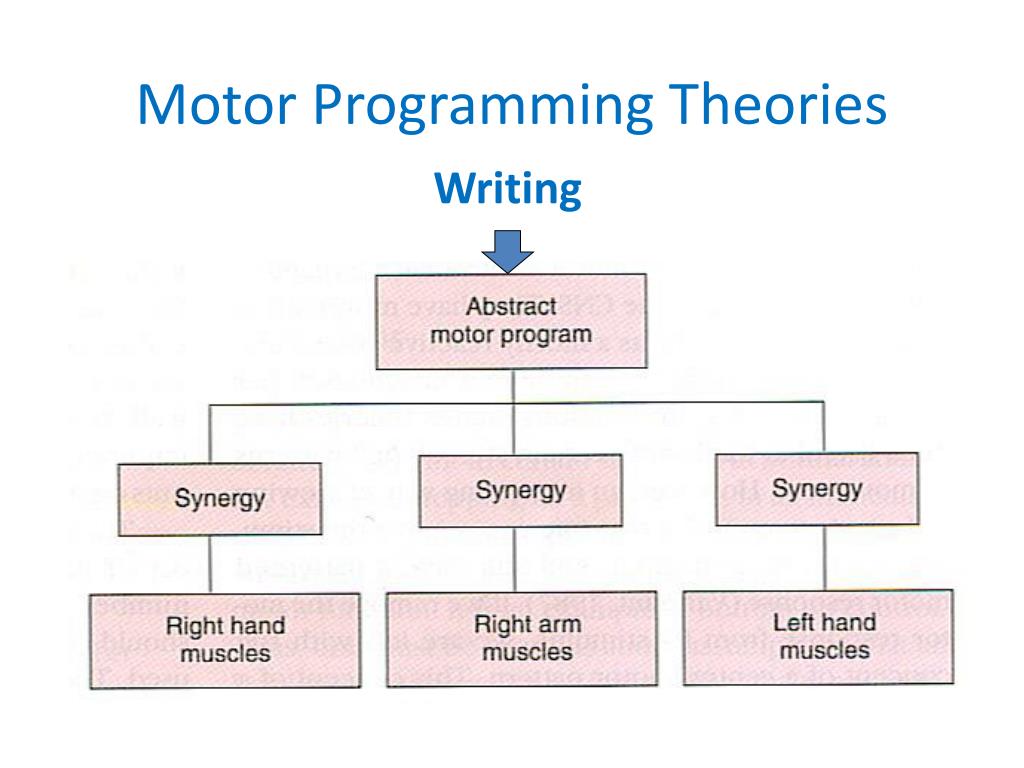
PPT PTP 512 Neuroscience in Physical Therapy Motor Control Issues and Theories PowerPoint
Motor program. A motor program is an abstract metaphor of the central organization of movement and control of the many degrees of freedom involved in performing an action. [1] p. 182 Signals transmitted through efferent and afferent pathways allow the central nervous system to anticipate, plan or guide movement.
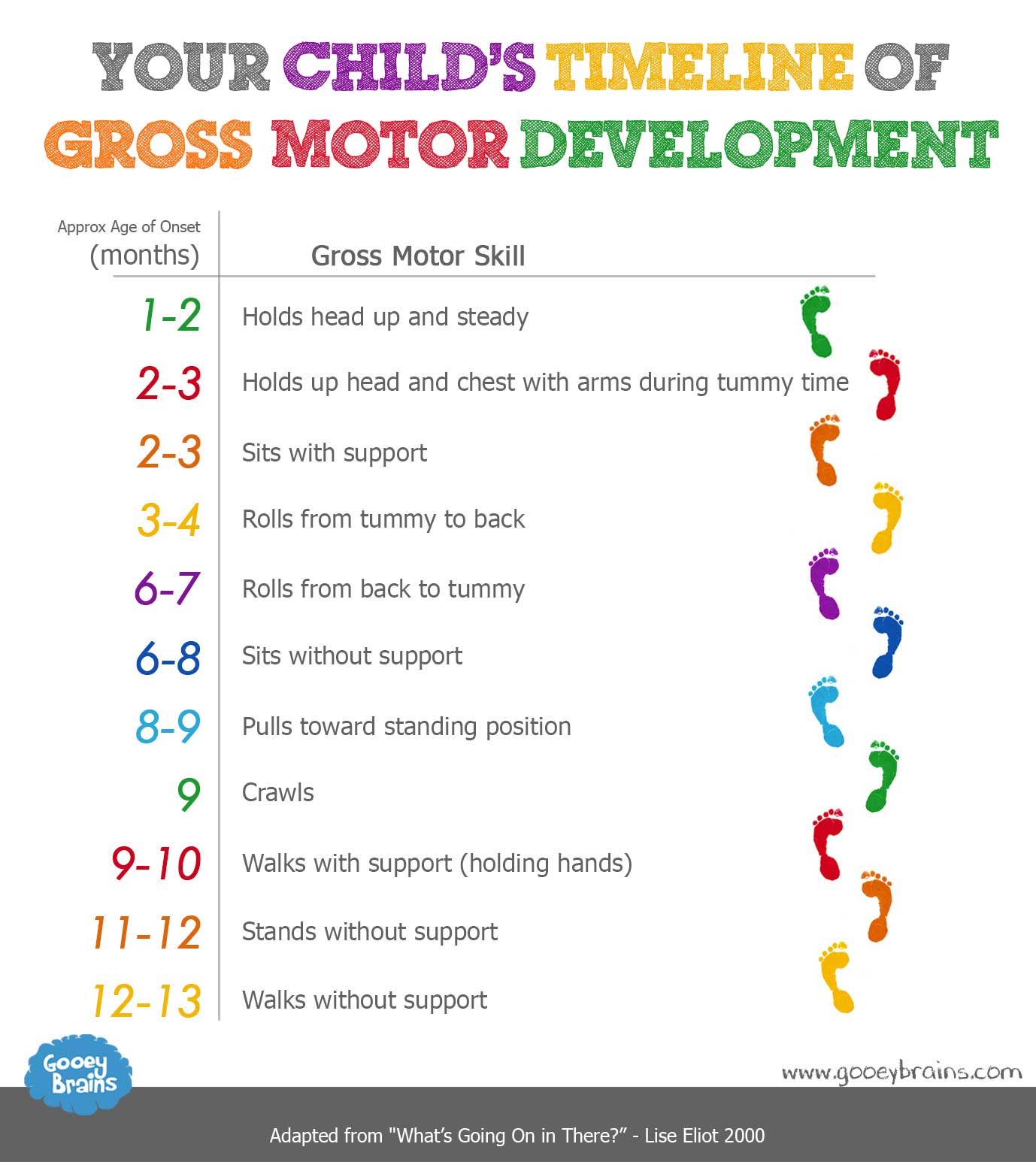
Child Development Motor Skills 101 What to expect and when!
Generalized Motor Program. When learning sequential movements, such as those involved in speech production, handwriting, typing, drumming, or sports skills, performers exhibit the ability to modify a learned movement sequence from execution to execution in some ways but not in others. This is thought to occur because a generalized motor program.

Perceptual Motor Program YouTube
Each motor skill has invariant features that are fixed (e.g. relative timing, relative force, sequence) and change from situation to situation. A motor program is a pre-structured set of commands that are constructed at the highest cortical levels and then conveyed to the lower centres within the hierarchy responsible for executing the movement.
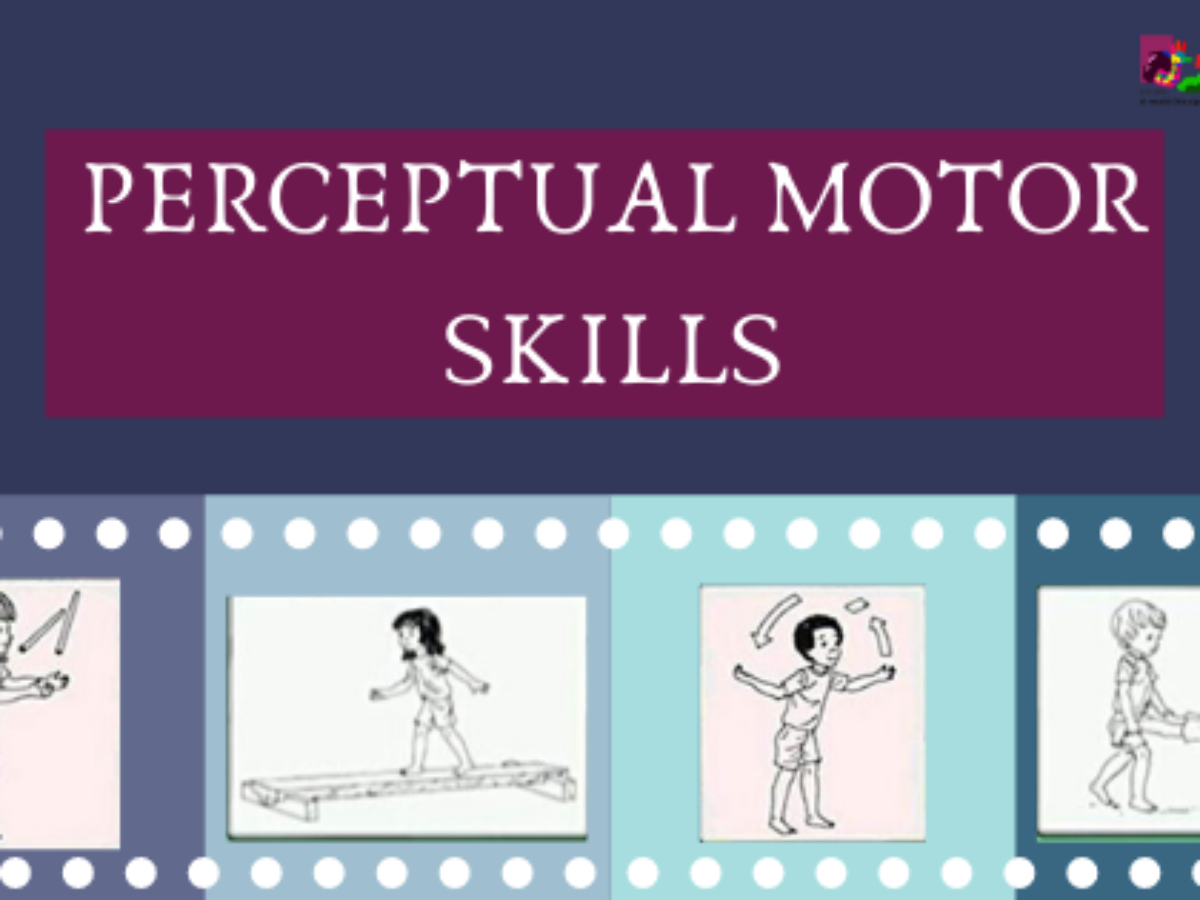
PerceptualMotor Activities For Children PDF With Web Resource ubicaciondepersonas.cdmx.gob.mx
Motor learning is also accomplished on the musculoskeletal level. Each motor neuron in the body innervates one or more muscle cells, and together these cells form what is known as a motor unit. For a person to perform even the simplest motor task, the activity of thousands of these motor units must be coordinated.
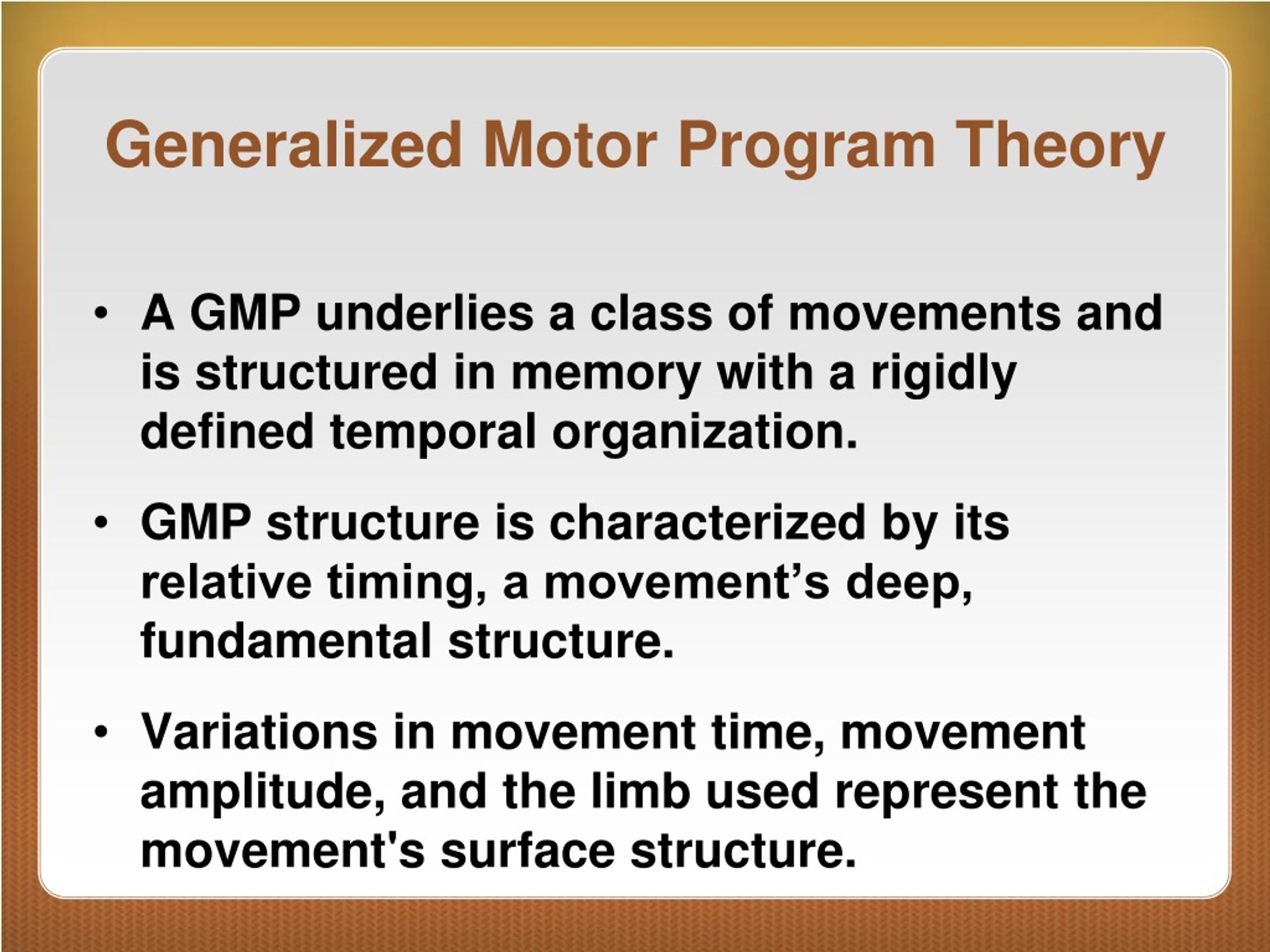
PPT Chapter 5 Motor Programs PowerPoint Presentation, free download ID9239933
Define a generalized motor program and describe an invariant feature and a parameter proposed to characterize this program. Define the following terms associated with a dynamical systems theory of motor control: order and control parameters, self-organization, coordinative structures, and perception-action coupling.

Generalized Motor Program YouTube
Motor Program-Based Theory: Motor Control and Learning, Central control-oriented theories, Motor program, Generalized motor program, Invariant features, Char.
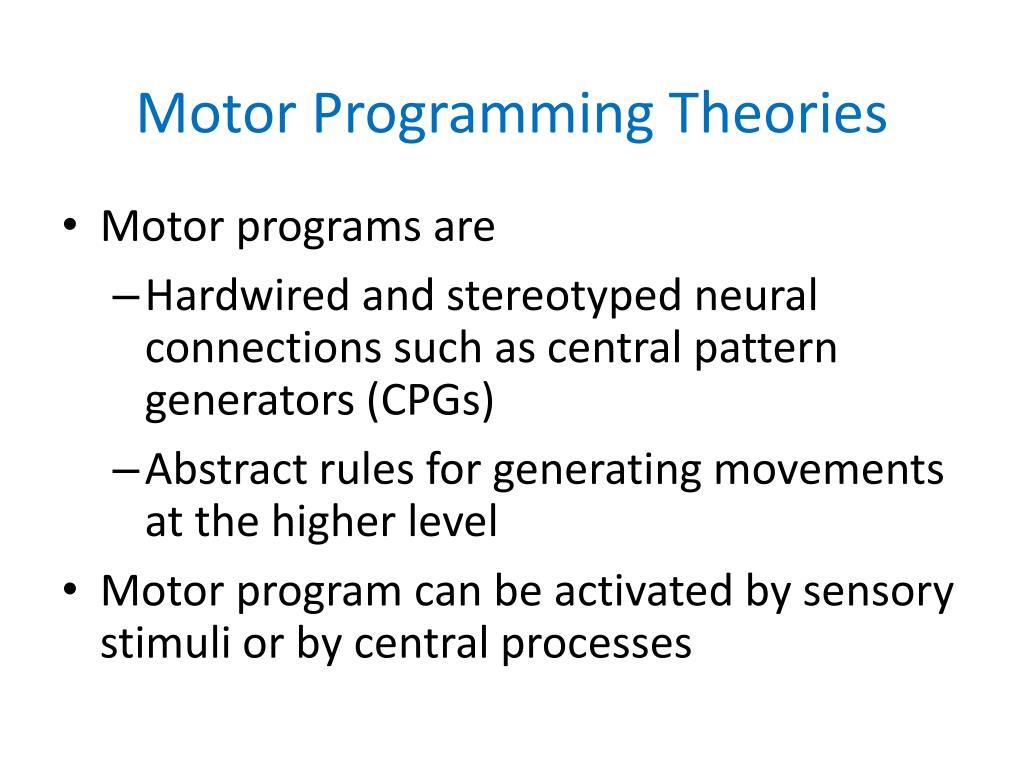
PPT PTP 512 Neuroscience in Physical Therapy Motor Control Issues and Theories PowerPoint
Motor skills are tasks that require voluntary control over movements of the joints and body segments to achieve a goal eg riding a bicycle, walking, surfing, jumping, running, and weightlifting. The learning and performance of these skills are what movement scientists refer to as motor learning and control, or skill acquisition.

SPHS502 Motor Learning General Motor Program YouTube
motor programs are thoguht to be generalized to account for a class of actions. parameters define the way in which the pattern is to be done. Study with Quizlet and memorize flashcards containing terms like motor program, evidence for motor programs, evidence for motor programs: RT increases when (3) and more.
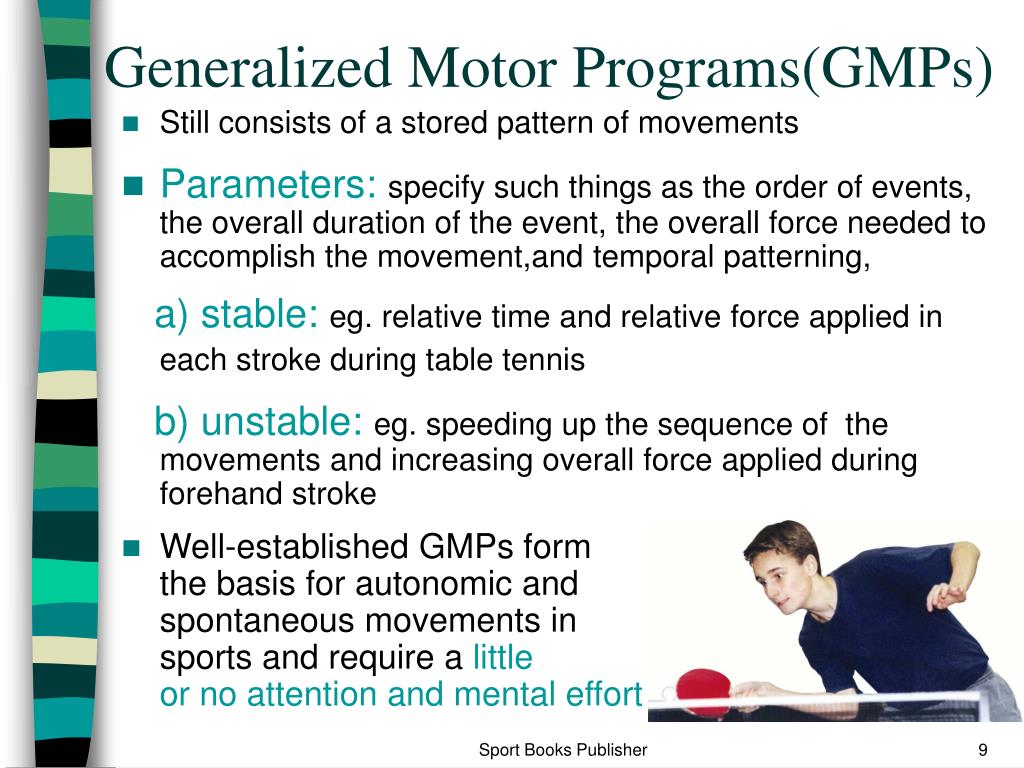
PPT Movement Intelligence A Vast Store of Motor Skills PowerPoint Presentation ID640317
Motor control is a relatively young field of research. It may be defined as an area of natural science exploring how the central nervous system (CNS) produces purposeful, coordinated movements in its interaction with the rest of the body and with the environment. Hence, the main goal of motor control research is to create a formal description.
- Alice In Wonderland Costume Diy
- Royal Life Saving Society Wa
- Melbourne International Garden And Flower Show
- Can You Play Gta 4 On Ps5
- Map Of Royal Botanic Gardens Sydney
- When Can A Woman Take Off Her Hijab
- Alliance Francaise Film Festival 2023
- Shenzhen Yiwei Technology Co Ltd
- Fount Of Every Blessing Chords
- Taurus On The Cusp Of Aries
